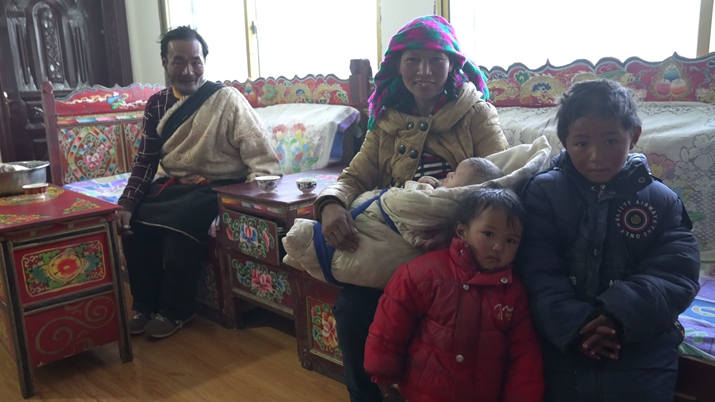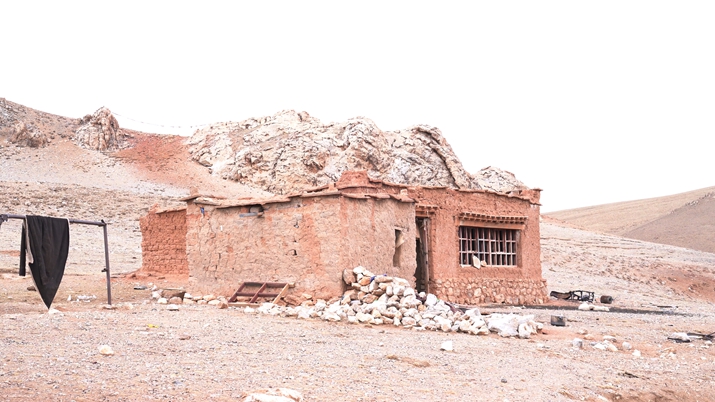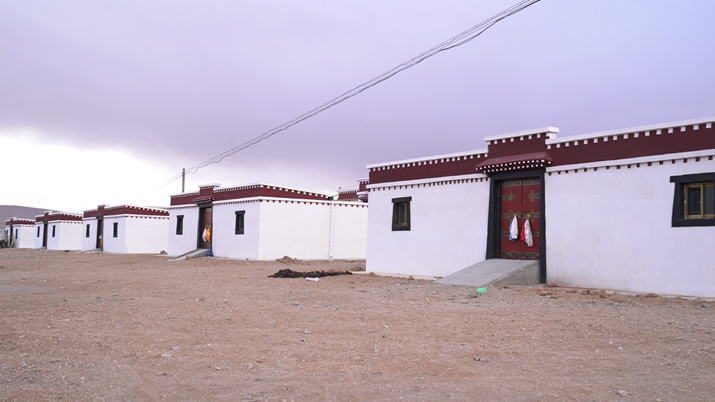From Poverty to Prosperity
Beijing Review by Li Nan ,April 15, 2019 Adjust font size:
The Dorjee family in their new Tibetan-style house built by the Shuanghu Government on April 2 (ZHANG WEI)
New home, new jobs
The relocation has also brought a lucrative income. Eight years ago, Dorjee made a living by raising sheep. The family's per-capita annual income was about 1,000 yuan ($149), far below the national poverty line of 2,300-yuan ($338) income annually.
To pull such families out of poverty, the local government has taken multiple measures, including encouraging them to join local cooperatives and offering them new jobs.
From 2011, every member of Dorjee's family started to get an annual compensation for protecting meadows by not grazing their herds there. The amount rose to 5,500 yuan ($819) in 2016. Dorjee and his wife also get an annual salary of 7,000 yuan ($1,042) for working as meadow rangers. In January 2018, they were encouraged to join the local animal husbandry cooperative. From herding and milking sheep, they got a year-end bonus last year, making their per-capita annual income surge to 12,900 yuan ($1,921), 1,450 yuan ($216) higher than the per-capita disposable income of rural residents in the autonomous region.
In addition, after moving to his new house, Dorjee got two new jobs as village cleaner and grocer, which will bring in more money. "After the relocation, our lives have been greatly improved. Food, clothing and transportation are more accessible. I have found my feet in the new village," Dorjee said.
The relocation program is one of the five major targeted measures taken by the Central Government to end poverty. The other four are boosting the economy to provide more jobs, providing jobs related to ecological protection, improving people's education and social security. According to the Central Government's action plan issued in November 2015, nearly 10 million poor people will be moved out of remote mountainous areas, high-altitude plateaus, deserts, earthquake zones and other places with a fragile environment by 2020.
According to the work report of the Government of Tibet Autonomous Region tabled at the Second Session of the 11th People's Congress of the region on January 10, some 14.49 billion yuan ($2.16 billion) was spent on relocating about 218,000 people in 2018.
The Dorjee family is relocated from their old hut (up) halfway up a mountain to a new residency in Shuanghu County,southwest China’s Tibet Autonomous Region, at the end of 2018 (ZHANG WEI)



67c7d89f-7003-4b3c-960f-7f353a236290.png)
